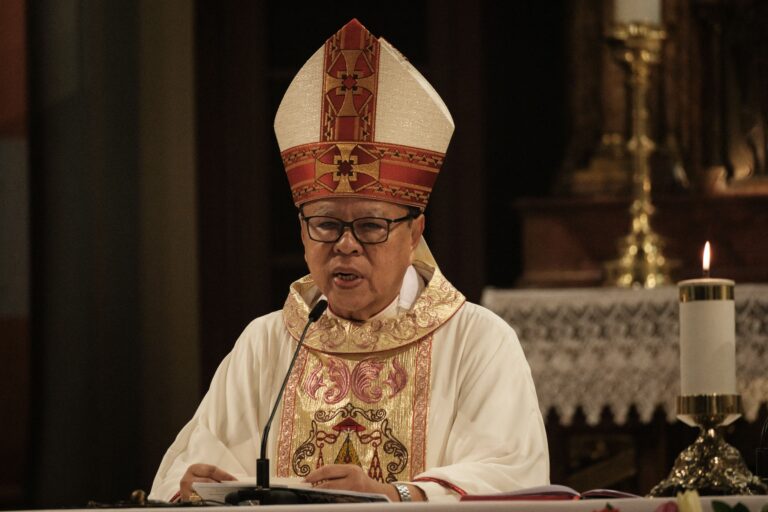Vatican City, August 28, 2024 / 14:37
Jakarta Archbishop Cardinal Ignatius Suhario has blamed Indonesia’s poor for ultimately paying the price for deep-rooted corruption.
Speaking to EWTN News In Depth in Jakarta ahead of Pope Francis’ visit to Indonesia, the cardinal stressed that despite Indonesia’s abundance of natural resources, endemic corruption continues to erode its potential.
“Without corruption, Indonesia would be a prosperous country,” Suharyo said.
“Indonesia is a very ‘religious’ country, but we have to question this,” Cardinal Ignatius Suharyo said, speaking about the fact that while many Indonesians claim to be religious, corruption and human trafficking are rife. We spoke ahead of Pope Francis’ speech… pic.twitter.com/Kn0U0sQyPj
— Colm Flynn (@colmflynnire) August 26, 2024
“We have everything,” he said, “we have an abundance of natural resources… but corruption is destroying the ideal of becoming a prosperous nation.”
Indonesia, Southeast Asia’s largest economy, has long been plagued by corruption in both the public and private sectors. The country consistently ranks low in Transparency International’s Corruption Perceptions Index, with more than one in three Indonesians saying they had paid a bribe for a public service in the past year.
The cardinal noted that corruption in Indonesia has broader societal implications. “Corruption is very serious,” he said. “Human trafficking is becoming more and more prevalent.”
“Social justice for all is enshrined in five principles,” Suharyo added, referring to Indonesia’s foundational philosophy, Pancasila. He lamented that corruption in Indonesian governance was preventing the realization of that ideal.

Yanuar Nugroho, a sustainable development expert at Indonesia’s Ministry of National Development Planning, echoed Suharyo’s concerns.
Corruption is widespread, Nugroho told EWTN: “In Indonesia, you can trace back any case and find corruption. The root cause is a lack of accountability, a lack of integrity.”
Nugroho, a Catholic, believed good governance was especially necessary in times of crisis, citing the 1998 Asian financial crisis that nearly brought the country to collapse. “When the economic crisis hit the country, the country basically collapsed on a very weak foundation, as if it was built on sand. I think that’s when an understanding of good governance slowly emerged,” Nugroho explained.

Despite these challenges, both Suharyo and Nugroho acknowledged that there is growing awareness in Indonesia of the need to fight corruption.
The cardinal noted that while freedom of speech allows for open criticism of corruption, significant obstacles remain.
“Professors teaching at universities are vocal about corruption, but it continues to exist,” he noted. “Sometimes, corruption is used for political purposes.”
(Continued below)
Subscribe to our daily newsletter
According to World Bank data, 26 million people in Indonesia live below the national poverty line as of 2022. Corruption exacerbates existing inequalities between rural and urban Indonesia, diverting resources that could be used to improve infrastructure, health care and education for the poor.
Bishop Suharyo regularly visits poor rural areas of his archdiocese and has urged Indonesia’s new government to make closing infrastructure gaps to give the poor better access to education and health services a greater priority.
The cardinal has been busy as Indonesia prepares to welcome Pope Francis, whose visit to Jakarta will take him to four countries in Southeast Asia and Oceania from Sept. 2-13.
Suharyo said Indonesians are touched by the generosity of Pope Francis, who has undertaken this long journey at the age of 87. He said he hopes Pope Francis’ visit will inspire Indonesians with a renewed commitment to brotherhood and compassion among all faiths.
A full preview of Pope Francis’ visit to Southeast Asia, including interviews with Suharyo and other Catholic leaders in the region, will air on “EWTN News In Depth” on August 30 at 7 p.m. ET.



